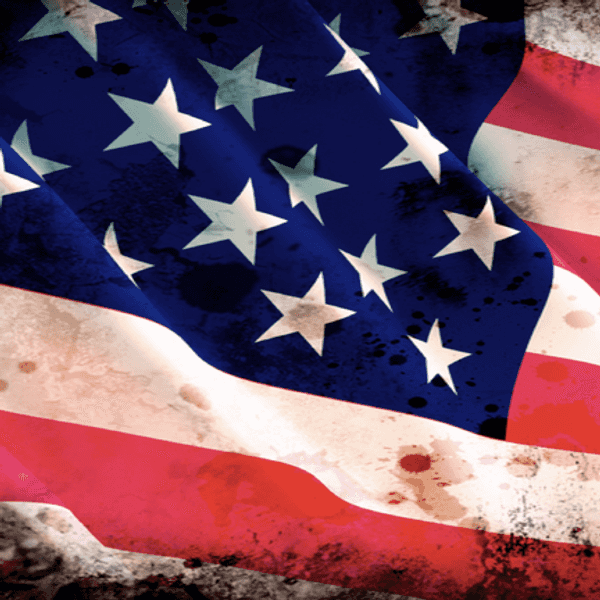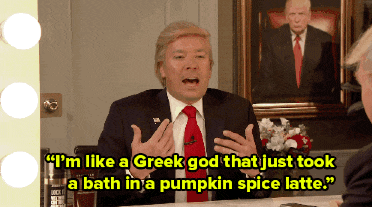Recently in the news, there has been some questioning over Hillary Clinton's health after she was diagnosed with pneumonia and dehydration by her physician. This raises an important question voters are faced with (and it isn't a new one): should candidates release their medical information to the public during their campaign? Is it the voters' right to know the medical standing of their potential president?
I'm somewhat of a newbie to this debate. Personally, I don't think we need to know every bit of a candidate's health history--unless it impacts their future ability to partake in the presidency. There are also some issues that may be highly stigmatized that no one wants to talk about. If a candidate has a history of severe mental illness, one that they've dealt with for a long time and presumably have a good management of, should they still disclose it or is it frankly no one's business what they've dealt with health-wise?
So with these numerous questions in mind I jumped off the deep end and did some research of my own.
According to a Gallop poll conducted this past summer (which also utilized data from telephone interviews in 2004), 96 percent of Americans feel that the health of our president is important to his/her ability to be a good president while about 4 in 10, or 40 percent, think the president should publicly release medical information, rather than keep it private.
While it seems fairly obvious that the healthier our president is, the better they will do on the job, what about our presidential candidates--does the same standard also apply to them?
Before he was elected as president in 1961, John F. Kennedy was outed by aides to Lyndon B. Johnson as having Addison's disease in 1960--which results in the adrenal glands producing insufficient levels of some hormones and can be life-threatening--but the claim was publicly denied by the Kennedy's, even though it was true. Kennedy also suffered with ulcers, colitis and back trouble that occasionally required the use of crutches.
While it's clear that some presidents have had health complications, it's not always obvious how that condition would have affected their campaign if that information had been previously disclosed.
An example of a candidate disclosing his health condition in the midst of running for the democratic nominee for president is John Kerry and his bout with prostate cancer. He was diagnosed in 2003 during his campaign; however his prognosis was a 95 percent chance of complete recovery, according to his physician. In July 2004, a little over 1,000 interviewees were asked if Kerry's cancer concerned them; 92 percent said no. Were Americans less concerned with the cancer because the prognosis was so good, or maybe because it's common, but treatable? According to the American Cancer Society, about 1 in 7 men will be diagnosed with prostate cancer in their lifetime and it's fatal for about 1 in 39 men.
Reflecting back on the current election, are citizens really concerned about the health of our candidates, or is the media hyping up their health issues--which seem to be rather mundane--in order to create a feeding frenzy that may just result in misinformation? Possibly feeling targeted or held to a different standard than Trump when it comes to releasing health records, Hillary has resulted to pointing out the lack of disclosure regarding Trump's tax returns.
Releasing tax returns are not required, but many candidates eventually do so. If Trump decides not to release his tax returns, he'd be the "first major-party presidential nominee in four decades to withhold them," according to an article by NYTimes contributor Christine Hauser. Furthermore, Reid Hoffman, co-founder of LinkedIn, will match funds donated on a fundraising campaign up to $5 million dollars that will eventually be used to contribute to organizations for veterans if Trump releases tax returns before October 19th. Trump's response has been that his tax returns are under an audit, but that he will make them public upon election and after the audit is complete.
With all of this being said, I decided to create a poll asking the main question this article revolves around: Should candidates be required to release their medical information? I shared this poll on Facebook and various Facebook groups for my college. I also allowed room for additional expansion on why or why not respondents had the response they did.
The voting question was: Do you think voters have the right to access health records of presidential candidates? I received 38 responses (yes/no) and 31 responses that expanded on the first question.
Here are the results.
28.9%-Yes, it's the voter's right
28.9%-No way--that's private information.
26.3%-It's the candidate's choice
15.8%-It depends on the situation.
I also received a variety of anonymous responses detailing the survey participant's choice. (Answers may be edited for grammar, length.)
Some felt that health records are none of our business.
I don't see how medical records are relevant to presidency!
Medical records are kept private for everyone else, why not the candidates?
Medical records are private information. And as a person with health issues, I would never want anyone to hold that against me.
I am a nursing student and we take privacy in health care to a whole new level! I believe they should be allowed to keep their medical records private and it is not the country's right to know what they may or may not be struggling with. Health is ever changing and if a person is going to base their vote on a candidate's health I think they should understand that things can change especially in 4-8 years that the candidate may be in office and their health can vary so the information that is shared during their campaign could change. All in all, I believe it is their right to keep their records private because there is no way to know if a condition they may or may not have will affect their role in office.
Others felt that it was our right to know candidates' health.
I chose yes because if an official is running for a public office like President we, as voters, should have the right to know if who we are electing to run our country is going to be in good health and a state of mind to make decisions and do what they were elected to do.
If the person you chose to be president isn't going to be president for long due to medical issues the voters need to be informed so they can pick their next best choice.
As a voter, we should be given basic health information regarding candidates so we can make informed decisions. Voters should be reassured candidates do not have any physical or mental impairments that would hinder their ability to lead effectively
And some thought it depended on the circumstances/candidate's choice.
If they only have a couple more years to live then they should tell the voters. Otherwise, no
I believe that if the candidate has a life threatening or life changing health concern, the public should know before electing someone who may end up not being able to do the job
Health does not determine leadership skills (ex FDR). I do believe it is up to the candidate's discretion to release it or not. The only foreseeable issue is that if a candidate is diagnosed with a terminal or severe mental illness.
What do you think about releasing candidates' private information to help you make an informed vote? Is the information worth more than individual privacy?





















